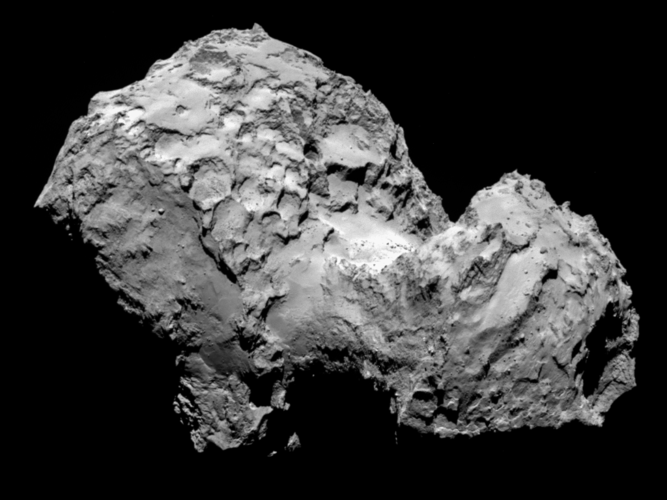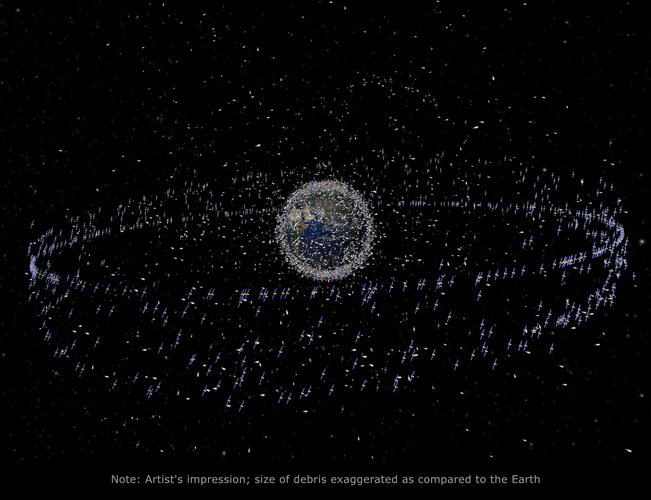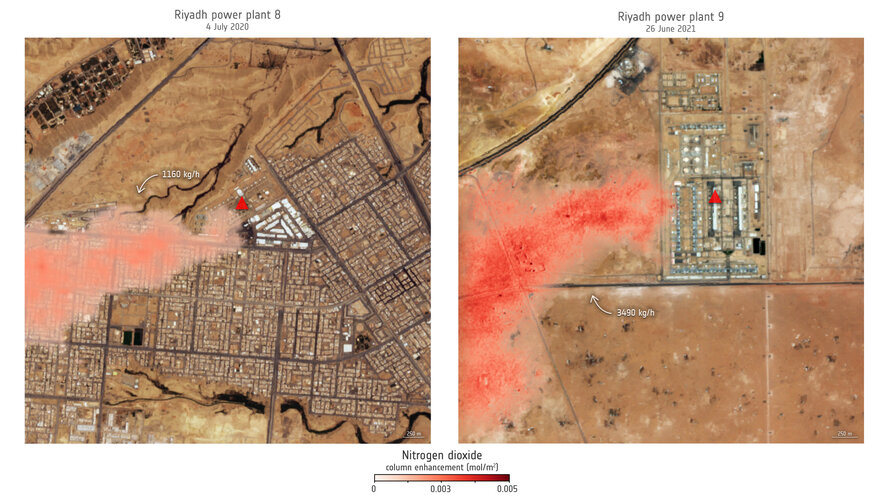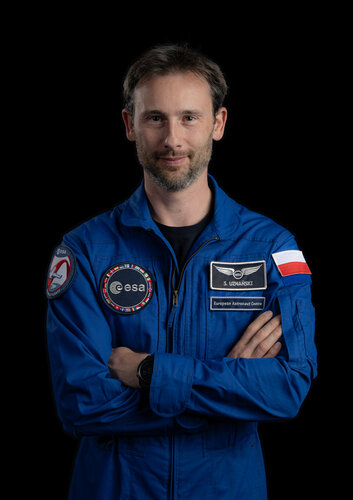
Copernical Team
Rosetta and beyond: tales of a mission that left a mark

Exactly ten years on since Rosetta arrived at Comet 67P/Churyumov-Gerasimenko, we dig into how the intrepid explorer has transformed our knowledge of comets, revealed some crucial pieces in the Solar System jigsaw puzzle, and shaped how we develop new missions.
Knowledge beyond our planet: space-based data centres

Space is changing, and the number of actors operating in orbit is increasing. Meanwhile, the amount of data collected by satellites is increasing as well. This data-treasure is priceless, supporting human and robotic exploration of space, helping us to take care of our planet as well as to unveil the most distant secrets of the Universe. However, one of the main challenges of nowadays space activities is downloading data from space to Earth. IBM and KP Labs together with ESA is forecasting the future of technology by imagining space-based data centres.
Protecting Confidential Information with Mobile Scanners
 In today's world where confidentiality is key, businesses need to use the latest technology to keep data secure. One such technology is mobile scanners which not only allow for quick and easy document digitization but also protect them. The a href="https://scanner.biz/">scanner app /a> has all the tools you need to scan and manage confidential data.
Mobile scanners like the Scanner App ar
In today's world where confidentiality is key, businesses need to use the latest technology to keep data secure. One such technology is mobile scanners which not only allow for quick and easy document digitization but also protect them. The a href="https://scanner.biz/">scanner app /a> has all the tools you need to scan and manage confidential data.
Mobile scanners like the Scanner App ar Everyday Tech from Space: Smartphone Cameras Have Space Origins
 Something that nobody has ever thought of before is - smartphone cameras have space origins. It seems like a very random and spontaneous thought that doesn't even make sense. How can a smartphone camera be connected to space? Is it possible that your camera, one of your Samsung cell phone parts, has such an interesting invention story?
Something that nobody has ever thought of before is - smartphone cameras have space origins. It seems like a very random and spontaneous thought that doesn't even make sense. How can a smartphone camera be connected to space? Is it possible that your camera, one of your Samsung cell phone parts, has such an interesting invention story? Detecting nitrogen dioxide from power plants with Sentinel-2

Atmospheric nitrogen dioxide is a harmful pollutant with significant impacts on air quality, climate and the biosphere. Although satellites have mapped nitrogen dioxide concentrations since the 1990s, their resolution was generally too coarse to pinpoint individual sources like power plants.
In a recent study, researchers used imagery from Copernicus Sentinel-2 to observe nitrogen dioxide plumes from power plants for the first time – marking a significant advancement in air pollution monitoring.
Sławosz Uznański from Poland will fly to International Space Station on fourth Axiom Space mission

Polish project astronaut Sławosz Uznański is scheduled to fly to the International Space Station on Axiom Mission 4 (Ax-4).
SpaceX launches Northrop Grumman mission to ISS
 SpaceX successfully launched a resupply mission for the International Space Station on Sunday after it was postponed Saturday because of unfavorable weather.
The space exploration company used a Falcon 9 rocket to launch the Cygnus spacecraft made by Northrop Grumman - best known as a defense contractor.
Northrop Grumman changed its launch vehicle for Cygnus missions from its ow
SpaceX successfully launched a resupply mission for the International Space Station on Sunday after it was postponed Saturday because of unfavorable weather.
The space exploration company used a Falcon 9 rocket to launch the Cygnus spacecraft made by Northrop Grumman - best known as a defense contractor.
Northrop Grumman changed its launch vehicle for Cygnus missions from its ow Andean Glaciers Reach Smallest Size in Over 11,700 Years Study Finds
 Rocks newly exposed after millennia beneath ice reveal that tropical glaciers have shrunk to their smallest extent in over 11,700 years. This discovery indicates the tropics have warmed beyond levels seen in the early Holocene epoch, according to researchers from Boston College, whose findings were published in Science.
Scientists have anticipated that glaciers would retreat as tropical te
Rocks newly exposed after millennia beneath ice reveal that tropical glaciers have shrunk to their smallest extent in over 11,700 years. This discovery indicates the tropics have warmed beyond levels seen in the early Holocene epoch, according to researchers from Boston College, whose findings were published in Science.
Scientists have anticipated that glaciers would retreat as tropical te AFWERX, MTSI Evaluate Electric Vertical Takeoff, Landing Aircraft For Military Applications
 As the sun rose over Springfield-Beckley Airport, Ohio, a quiet hum from an unusual aircraft signaled the start of another day of flight testing.
Since mid-June, experts from AFWERX, the Department of the Air Force's innovation arm within the Air Force Research Laboratory, have been working with Beavercreek, Ohio-based defense contractor Modern Technology Solutions Inc., or MTSI, to evalua
As the sun rose over Springfield-Beckley Airport, Ohio, a quiet hum from an unusual aircraft signaled the start of another day of flight testing.
Since mid-June, experts from AFWERX, the Department of the Air Force's innovation arm within the Air Force Research Laboratory, have been working with Beavercreek, Ohio-based defense contractor Modern Technology Solutions Inc., or MTSI, to evalua Royal Australian Air Force Receives First MQ-4C Triton Uncrewed Aircraft
 Northrop Grumman Corporation (NYSE: NOC) and the Royal Australian Air Force (RAAF) celebrated the arrival of the first MQ-4C Triton uncrewed aircraft at RAAF Base Tindal in the Northern Territory. This high-altitude, long-endurance aircraft will provide Australia with an advanced maritime intelligence, surveillance, reconnaissance, and targeting capability.
The MQ-4C Triton arrived at RAAF
Northrop Grumman Corporation (NYSE: NOC) and the Royal Australian Air Force (RAAF) celebrated the arrival of the first MQ-4C Triton uncrewed aircraft at RAAF Base Tindal in the Northern Territory. This high-altitude, long-endurance aircraft will provide Australia with an advanced maritime intelligence, surveillance, reconnaissance, and targeting capability.
The MQ-4C Triton arrived at RAAF 































